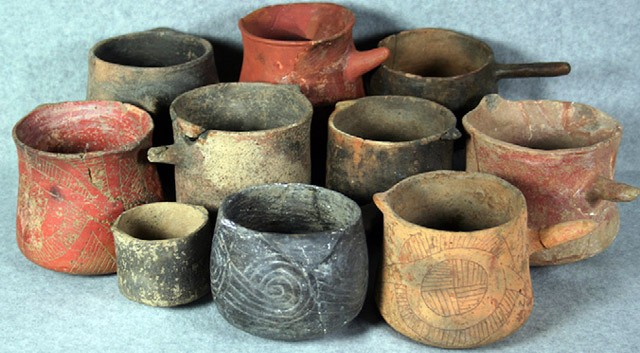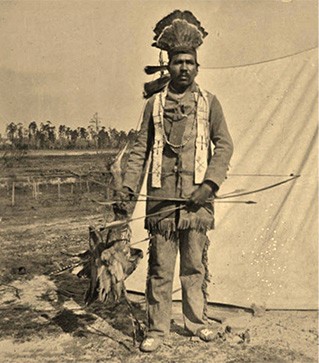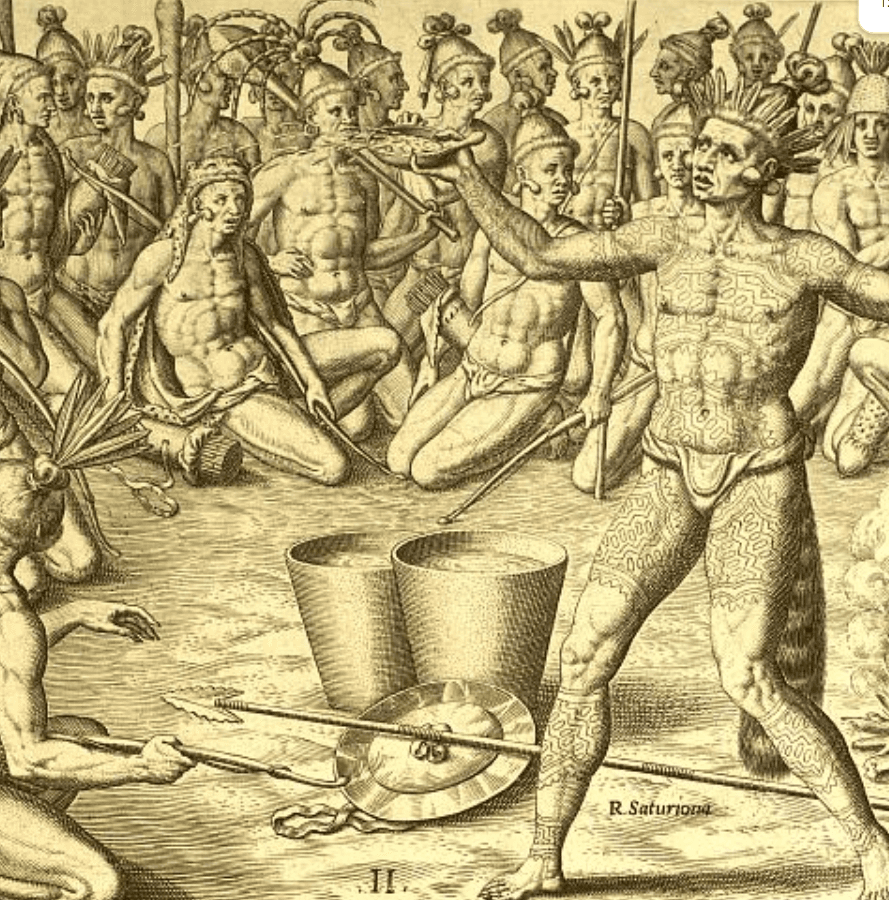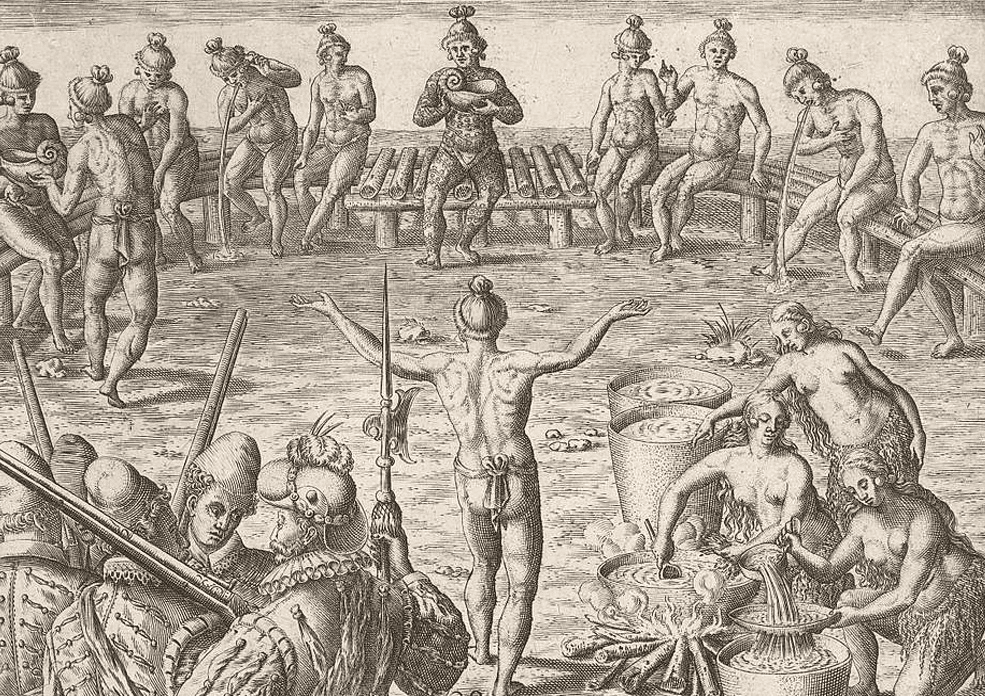
Yaupon tea held a central place in the culture of many Southeastern tribes like the Yuchi, Caddo, Chickasaw, Cherokee, Choctaw, Muscogee, Timucua, Chitimacha and Catawba. Celebrated for its energizing effects, it was deeply valued in spiritual and ceremonial roles, fostering social bonds and reinforcing shared histories. Beyond being a beverage, it symbolized vitality, life, and a profound connection to the land—an enduring part of Native American heritage and spiritual practices.
Origin Story
Long ago, an Indian man was tormented by a lingering illness that baffled even the most skilled healers of his tribe. Desperate for relief, he fell into a deep sleep. In his dreams, a voice guided him, revealing that the cure lay in a decoction made from the leaves of a special tree growing at his head. When he awoke, he was astonished to find a Yaupon tree standing beside him, though it had not been there when he had drifted off. Trusting in the wisdom of the dream, the man prepared the drink as instructed and was swiftly healed.

Purification
Across Native American tribes in North and South America, physical and spiritual purity was seen as vital to success in any important endeavor. Whether preparing for battle, a hunt, or a sacred ceremony, personal purity was believed to shape the outcome. To reach this heightened state, tribes often turned to emetic plants and potent herbal brews to cleanse both body and spirit. While Yaupon itself has no emetic properties, participants in sacred ceremonies sometimes consumed large quantities of the black drink—up to six gallons by some estimates—resulting in vomiting, either voluntarily or involuntarily. In some cases, other purgative herbs may have been added to enhance this effect. In smaller, controlled amounts, black drink was enjoyed as a caffeinated beverage during daily routines, ceremonies, and council meetings.
Unity
Yaupon tea was more than a tool for purification and ceremony; it also played a vital role in fostering friendship and diplomacy among Native American tribes. Sharing the black drink was a meaningful way to express unity and goodwill. Tribe members would gather in the town square or council houses, drinking Yaupon tea while discussing key issues of governance. This tradition of sharing extended to visitors as well. Offering Yaupon tea to guests was a sign of hospitality and peaceful intentions, symbolizing mutual respect between host and guest.

